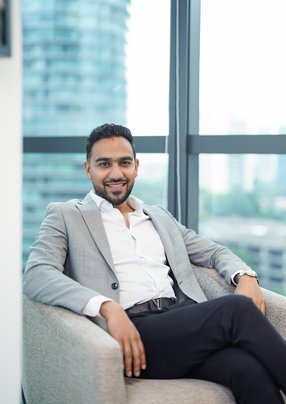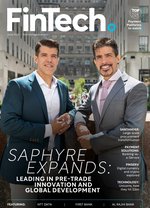
Arsalaan Ahmed
CEO of Al-Rajhi Bank Malaysia

Arsalaan (Oz) Ahmed, CEO of Al-Rajhi Bank Malaysia (ARBM) says, “my goal is to serve the under-served". ARBM is a subsidiary of its parent, Al-Rajhi Bank (ARB), which is headquartered in Saudi Arabia, and was established in 2006, marking Al-Rajhi’s expansion into international banking beyond Saudi borders.
One of the core tenets of Islamic finance is the preservation of wealth for people, which needs an economy that works for the majority. There are certain pillars that are required for such an economy, for example, one of the pillars is ensuring people are incentivised to spend money and to keep it circulating. Another pillar would be, what the capital is allowed to be used in; Islamic financing does not allow capital to be invested in industries, products or services that are not beneficial to the society, e.g. gambling, arms, alcohol. From a Shariah point of view, Shariah Compliant Banking is a form of ‘ethical banking’.
ARB was eventually established in 1957 and has since grown into one of the world’s largest Islamic Banks by market cap and the largest in the Middle East and Saudi Arabia, with total assets of SAR 624 billion (US$ 166 billion), a market cap of SAR 354.5 billion (US$ 94.5 billion) and an employee base of 9,360+ associates as of December 2021. The Al Rajhi group is deeply rooted in Islamic banking principles and is instrumental in bridging the gap between modern financial demands and intrinsic values, whilst spearheading various industry standards and development.
Speaking of the journey that led him to becoming the CEO of ARBM, Oz says: “I grew up in East London when it was not as nice as it is now, and the first thing I wanted to do was to get out. I noticed that friends of mine were going to newer and better schools located in other places, and I would often question why they were able to move, and we were not. I later found out the reason was that my parents didn't have access to Faith-Based Home Financing, or in this case, Shariah-Compliant Financing so they could move us to better areas with better schools. As I got older, I increasingly saw this trend that people were being needlessly held back and unable to realise their full potential.”
Oz’s first professional foray into financial services was as Strategy Analyst for Accenture, which he began in 2004. Here, feeling as though he had at last moved beyond the fray of East London’s stifling environment, and still with the ideal of ethical banking practices in mind, he began to formulate his purpose, saying: “I paused to think about what it was that I really wanted to do, and one of those things, was to not allow for another child to worry about the problems that I worried about, which meant helping to make access to financing more inclusive. Obviously, social impact is very important to me. More thematically, I felt that financial services were not really providing what they could or should do, to society.” He then left Accenture so he could dedicate his career to inclusive banking, particularly Islamic banking.
By his mid-thirties and disillusioned with the direction of banking, Islamic banking, and his ability to influence change, Oz openly looked to leave the industry. When he was 36 years old, Oz received a phone call to apply for the CEO role at HSBC Amanah (the Islamic banking subsidiary of HSBC, based in Malaysia), in which his subsequent application was successful. He says, “the gentleman who hired me, who was then HSBC’s Group General Manager, told me, ‘If you want to change the industry, why don't you do it from the inside; from a position of strength?’”
However, the one thing that I noticed,” says Oz, “was that in the face of the speed of the changing landscape, the ambition to really serve people from a real economy perspective – retail and SME – and to meet the changing of the requirements of individuals and society more broadly, banks were not able to adapt quickly enough.
It was then that ARB contacted Oz and asked him to step into a position “that would really allow us to bring about these changes".
What's interesting about ARB is that they have a strategy that they call ‘unbank the bank’, which is now very much their tagline. They also refer to themselves as ‘a bank of the future’.
It was here, at ARBM, that Oz began to work on the kinds of changes that he felt would be more impactful. “When we started speaking about what ARBM was planning to do, it really was about changing the DNA and nature of banking, in order to offer better services for people. Our focus is on digital and being best in class in digital. Another thing that sets ARB apart from its competitors is its authenticity as an Islamic Bank.”
Read the full story HERE.
- Feedzai - fighting financial crime with a RiskOps approachFinancial Services (FinServ)
- Feedzai - fighting financial crime with a RiskOps approachFinancial Services (FinServ)
- Ethical Banking through FinTech and Digital TransformationBanking
- Ethical Banking through FinTech and Digital Transformation
Featured Interviews
"You have to be agile enough to gravitate to whatever needs your help the most, jump in and solve the problems you need to solve."

